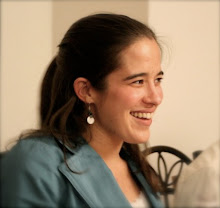My recent internal medicine rotation was emotionally intense and demanding time-wise. This post is the result of my ruminations of one of my patients there.
"He was a good man, a good father," she tells me through her tears, "a hard worker." We stand beside the bed of the man in question, now demented after multiple strokes to the point of near-total disorientation. He has been increasingly agitated and begun refusing not only oral medications but also food. Even the home-cooked food his family makes lies untouched, his wife and daughters unable to make him eat despite much affectionate cajoling.
I think about this man and what his life was like. Despite his wife's endorsement, other sides of this man have come to light during his hospital stay: a history of heavy alcohol and tobacco abuse, requests to visit some shady district of his home city, requests for a as his wife patiently waits by his bedside.
I am reminded of the uncharitable way our attempts at objectivity in medicine can affect how we see people. Would I treat this man differently if I knew who he had been before he spoke of something falling on him at school today as he patted the TV remote on his chest? Before he called out incessantly for his deceased mother and his wife when she has gone home to rest? Which of us - his wife or I - sees him more clearly? To what extent should I, can I, allow care for my patients to filter the information I have about them?
After a family meeting, his family decides against a feeding tube, and I am quietly grateful for that acceptance of the inevitable. We talk about how hard it is to come to terms with his decline, and I sit with his wife as she cries. In the end, they ask if I would want to be the patient's primary care doctor through these last days and weeks. Privileged and touched, I agree.
Thursday, December 2, 2010
Subscribe to:
Comments (Atom)

